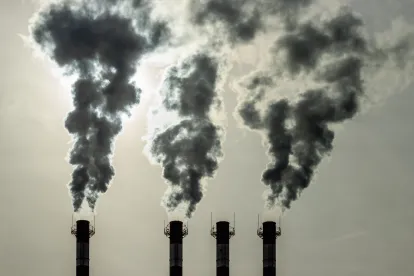For years, the expansion of existing industrial facilities or even just renewal of permits has required — first and foremost — compliance with applicable environmental laws, and in many cases has also involved local planning and community outreach. The Biden Administration, however, has introduced top-down policies regarding climate change and environmental justice that are changing the game in large and small ways. Firms looking to grow in this new climate need to take a broader view of the path toward permitting expansions and renewing existing permits.
A week after taking the oath of office, President Joe Biden signed Executive Order 14008, “Tackling the Climate Crisis at Home and Abroad,” an unusually detailed order aimed not only at rolling back certain Trump Administration policies but also at planting a flag on the Administration’s climate change priorities. The broad purpose of the order is “to organize and deploy the full capacity of its agencies to combat the climate crisis to implement a Government-wide approach that reduces climate pollution in every sector of the economy; increases resilience to the impacts of climate change; protects public health; conserves our lands, waters, and biodiversity; delivers environmental justice; and spurs well-paying union jobs and economic growth, especially through innovation, commercialization, and deployment of clean energy technologies and infrastructure.” While executive orders (EOs) rarely have an immediate effect on day-to-day operations, EO 14008 has already started to trickle down and impact industrial development and even the status quo.
Well before President Biden’s victory in November, national environmental groups had begun inserting themselves into the debate over local impacts of new industrial facilities. This trend continues, as does the trend for increasing out-of-state attention on local development.
Not only is new development receiving attention at the national level, the modification or expansion of existing facilities is as well, with a focus on EO 14008. For example, the Southern Environmental Law Center, Sierra Club, and other environmental groups recently submitted comments on the Tennessee Valley Authority’s (TVA) proposed Environmental Impact Statement (EIS) regarding the retirement of nine coal-fired units at its Kingston Fossil Plant, a 66-year-old electric power plant in Tennessee. The comments urge the TVA to replace the plant with carbon-free alternatives to align with the Biden Administration’s priorities of confronting climate change and achieving environmental justice as stated in EO 14008. In another matter, the Environmental Protection Agency (EPA) itself has weighed in on a proposed facility expansion. In August, EPA Region III submitted comments regarding the Federal Energy Regulatory Commission’s (FERC) draft EIS for a proposed additional compressor unit and ancillary facilities at the Marcus Hook Compressor Station in Pennsylvania. Citing EO 14008, Region III recommended, among other things, that the FERC analyze the “social cost of carbon” for the project’s emissions, disclose the project’s upstream and indirect downstream greenhouse gas (GHG) emissions, require the project proponent to reduce its GHG emissions over time to mirror Pennsylvania’s GHG emission reduction goals, and expand the information regarding impacts on environmental justice communities.
Even the renewal of existing permits without significant facility modification or expansion is receiving increased scrutiny. In Alabama, two Petitions for Objection have been filed asking the EPA to object to the renewal of Clean Air Act Title V permits for plants in Mobile County. The first, filed jointly by the Sierra Club and the Greater-Birmingham Alliance to Stop Pollution (GASP), requests the EPA to object to the renewal of an electric power plant’s air permit and is primarily concerned with SO2 emissions. The plant has been in operation for more than seven decades. The petitioners cite EO 14008’s policy to “hold polluters accountable for their actions [and …] deliver environmental justice” in support of their request. The second, filed by GASP, requests the EPA to object to the proposed renewal of a Title V permit for a chemical plant that has been in operation since 1965. The emissions of concern are particulate matter, carbon monoxide, nitrogen oxides, and carbon dioxide equivalents. The petition frames the need for the EPA objection in the context of EO 14008’s policy statements. These petitions generally seek more stringent permit terms related to emission limits and controls, monitoring, recordkeeping, reporting, and compliance certifications, as well as more complete information for public review and comment during the permitting process.
It is becoming increasingly clear that the growth in national attention and federal input into permitting decisions will continue. It is also clear that new facilities are not the only ones drawing fire; it is existing and expanding facilities as well. Now more than ever, it is important for companies to study and take EO 14008’s policy statements into account as they prepare even seemingly routine permit renewal applications.




 />i
/>i

